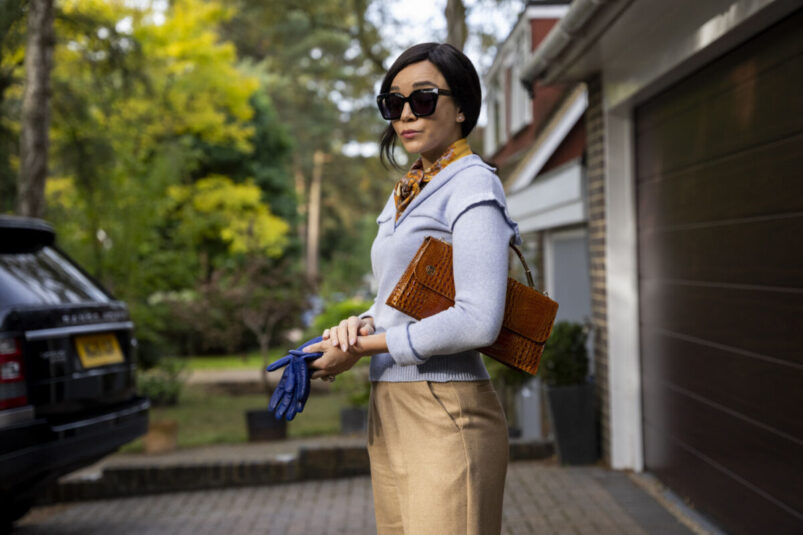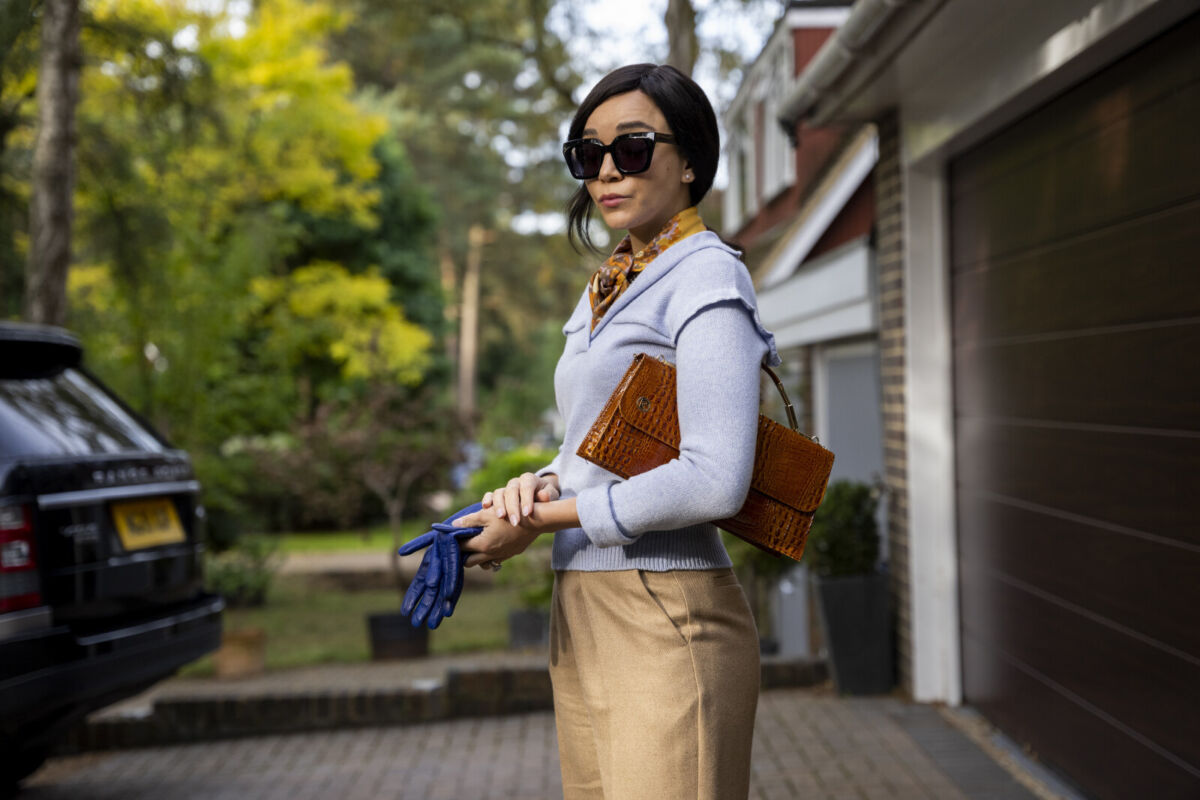The Strays released quietly on Netflix this past week, and may escape the radar of most viewers. It’s a shame, because the film is actually fairly decent, and has relevant things to say about race, identity and belonging.
Nathaniel Martello-White’s The Strays opens with a scene of a woman in despair. Cheryl (Ashley Madekwe) is tired of her life of constant struggle, and as she laments to her sister over the phone, she realises that she doesn’t want to do it anymore. So even though she promises to be around later to pick up her children, we know she won’t. In fact, she leaves and doesn’t look back, only stopping for a temporary gaze into the mirror in the hallway before shutting the door on her own life for good.
The look into the mirror here is symbolic, because as years past, we realise that Cheryl wasn’t just sick of her life, she was sick of being who she is. She now lives in the suburbs, with her new husband Ian and two children Mary and Sebastian, and a new name, Neve. Her usual cadence and style of speaking is replaced with a posher accent, one that she practices everyday in order to be flawless in her performance to the rest of society. She wears a variety of wigs to hide her natural hair, and it becomes clear that she’s choosing to pass as white in order to belong. Yet, there are microaggressions that remind her and the viewer that she doesn’t.
When she meets a friend for tea, the waitress hands the bill to her white friend instead of her, and even though the friend commends her on her fortitude, she also says she’s “practically one of them,” with the one “practically” hinting at her difference. The friend even throws in a comment about her lack of ageing, once again a reminder of her heritage and background. She can’t run away from the reality of who she is, even her own mixed race children remind her of the self that she’s chosen to suppress. When Mary starts to experiment with her hair, which is textured and curly like Neve’s, she gets her a special shampoo to wash all her attempts away. And when Sebastian puts up a poster of Lil Wayne in the gym, she removes it. Her children’s embracing of their black culture is unacceptable to Neve, who has banished every single trace of her own blackness.
Even in the privacy of her own home she dons wigs, and listens to operatic music even when she’s alone in the car. It’s a perfect, unending performance, a torture to keep up day in day out, which we only notice due to the perpetual itch Neve attempts to scratch beneath her wig. Her performance is threatened when two black teenagers show up in the suburbs, and they seem to be following Neve. Madekwe does a brilliant job as Neve, perpetually twitchy and paranoid from this intrusion into the neighbourhood, an intrusion that gradually makes its way into her family circle.
This aspect of the movie is reminiscent of Jordan Peele’s Us, in the way it’s staged and shot. Even some of the opening shots of the neighbourhood reminded me of Get Out. It’s clear that Peele is a filmmaking inspiration for Martello-White, and while this is great, I do hope he develops more of his own distinctive style as he makes more films.
If you’re a fan of Peele or even Michael Haneke, The Strays should entertain you, and certainly tickle your brain.
READ NEXT: 20 Best Cosmic Horror Movies of All Time
Some of the coverage you find on Cultured Vultures contains affiliate links, which provide us with small commissions based on purchases made from visiting our site.


